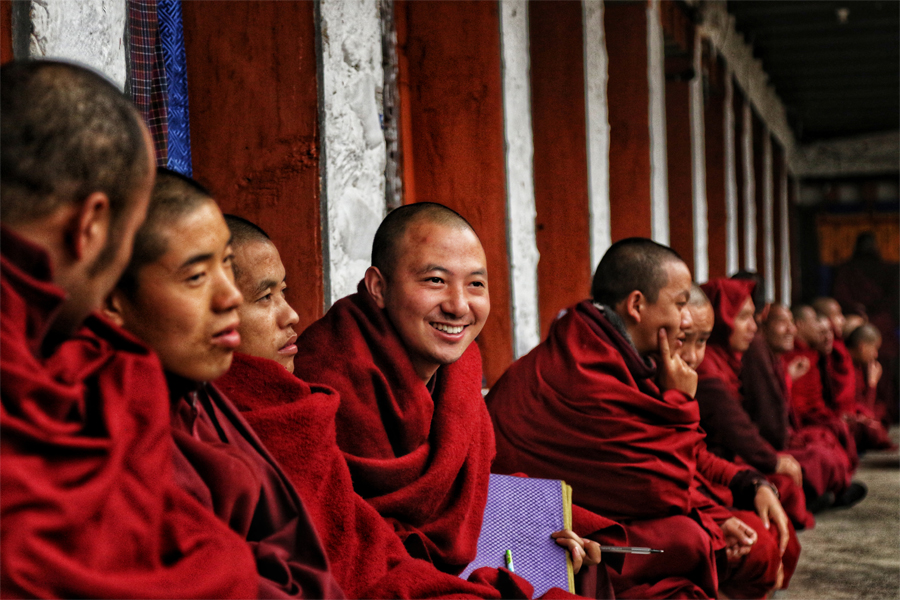Gross National Happiness (also known by the acronym: GNH) is a philosophy that guides the government of Bhutan. It includes an index which is used to measure the collective happiness and well-being of a population. Gross National Happiness is instituted as the goal of the government of Bhutan in the Constitution of Bhutan, enacted on 18 July 2008.

Bhutanese officials say the happiness index is about finding balance—between modernity and tradition, between prosperity and ecological conservation, between material advancement and its discontents. Some wish the country could stop releasing conventional economic indicators altogether.
In 1972, His Majesty the Third King of Bhutan passed away prematurely and the responsibility to lead the nation fell on His Majesty the Fourth King of Bhutan, who was 16 years of age at that time. On a way to a conference abroad, he was asked by a journalist, what is Bhutan’s GNP. He replied that, for Bhutan, “GNH is more important that Gross National Product”, thus giving birth to the term, “Gross National Happiness” or simply GNH.

GNH today, in the words of His Majesty JigmeKhesarNamgyelWangchuck, simply means “development with values fundamental values of kindness, equality and humanity and the necessary pursuit of economic growth”.
As a public policy, GNH development framework is based on the four pillars:
– Sustainable and Equitable Socio-economic development;
– Conservation of environment;
– Preservation and promotion of culture;
– Good governance.
Today, GNH is embedded in Bhutan’s Constitution. The preamble contains a pledge to enhance the unity, happiness and wellbeing of the people of Bhutan for all time and Article 9.2 states: “The State shall strive to promote those conditions that will enable the pursuit of Gross National Happiness”.
Bhutan’s modest economic success, an intact environment and its smooth and successful transition to a democracy are the result of the development approach based on GNH.
